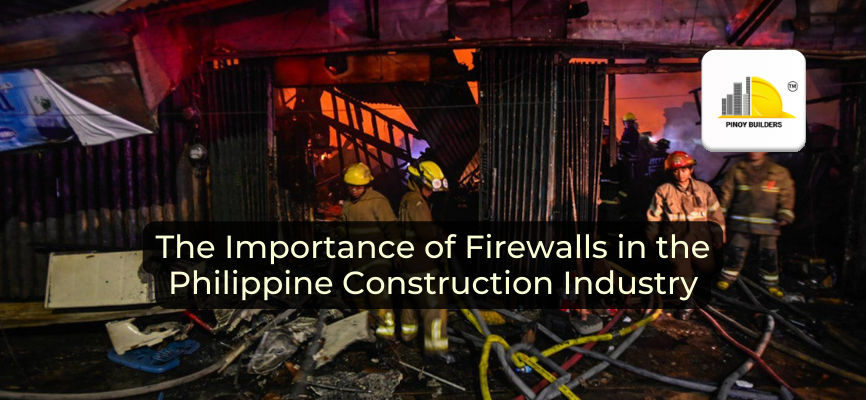Building permits are important documents that validate the security and quality of the structure while ensuring the safety of the occupants inside. In the Philippines, building permits are necessary forms that need to be issued before other vital documents can be granted to the home or building owner. For residential construction or renovation, a building permit is a subdivision or village requirement. For the construction of commercial buildings, an occupancy permit is required– and a building permit is necessary for the issuance of one.
While building permits are important documents that a legal construction project is required to have, there are still many buildings in the country that are erected sans the permit. Just last month, Baguio’s Buildings and Architecture Office (CBAO) released data showing that at least 80% of the building structures in the city do not have proper permits. It is important for all building owners and construction managers to secure this permit before beginning the construction project. Without it, those who are considered accountable for the project will be in violation of the Presidential Decree (P.D.) No. 1096, or the 1977 National Building Code of the Philippines (NBCP). In this article, we will discuss the penalties that a homeowner or corporation will face in the construction of a building without a permit.
Penalties for Building Without Permits In The Philippines
While there are a significant amount of buildings erected in the country without proper permits, it is important to remember that this action is in direct offense to the Philippines’ law, and doing so will require authorities to convict and punish all responsible individuals. Building permits are only issued to projects that pass all the requirements specification under the NBCP, and all individuals, firms, or corporations that disregard the legal local building quality standards will be sentenced to the proper corresponding penalty.

The National Building Code of the Philippines signed by then-President Ferdinand Marcos in 1977, clearly states that it is unlawful for any individual, firm, or corporation to “erect, construct, enlarge, alter, repair, move, improve, remove, convert, demolish, equip, use, occupy, or maintain any building or structure or cause the same to be done contrary to or in violation of any provision of this Code.”
Section 213 of the NBCP includes the penalties that will be imposed on anyone who offends the Code. According to the online copy of the official National Building Code of the Philippines, as published by the Philippines’ Official Gazette website, any individual who clearly violates the Code will be punished with a fine of not more than ₱20,000.00 or imprisonment of not more than 2 years. In some cases, both the ₱20,000.00 fine and the 2-year imprisonment can be imposed.
In case there are multiple individuals considered accountable for the building construction, like those working for firms or corporations, the penalties will be imposed on all authorities responsible. In special situations where those responsible are not citizens of the Philippines, the corresponding fine or imprisonment, or both, shall still be enacted, following deportation after payment of the fine or completion of their sentence.
Can I Sue A Fraudulent Contractor?
Poor workmanship, non-completion upon the agreed deadline, and breach of contract are some of the most common reasons why a homeowner will file a lawsuit against a contractor. Among these reasons, non-compliance with the National Building Code of the Philippines can be considered a fraudulent claim, in which the contractor had promised the construction of a building that passes the Code but completed a building with one or multiple violations instead. This situation can also be considered a breach of contract. In case the homeowner or building owner finds themselves in such a situation, consultation with the authorities or a legal advisor is necessary.
The Importance Of Building Permits
Building permits are official government requirements that all building structures in the Philippines should obtain before initiating project operation and completion. Building permits also serve as a vital form that will be a prerequisite before the issuance of other important forms like occupancy permits and the approval of permanent electrical connections. Homeowners and those who will construct or alter a building should be aware of the consequences of the lack of this essential document. Practicing responsible construction practices and proper observance of the Code will ensure that the building not only complies with the required building standards of the country but also ensures the safety of the occupants of the building.

References
- Agoot, L. (2023, September 5). Baguio discovers 96K structures sans permit. Philippine News Agency. Retrieved October 18, 2023, from https://www.pna.gov.ph/articles/1209271
- Architect JCA – Design & Build. (n.d.). Building Permit – Architect JCA. Architect JCA – Design & Build. Retrieved October 18, 2023, from https://jca-architect.weebly.com/building-permit.html
- Castillo, A. (2023, March 2). 80% of Baguio’s buildings have no permits. Rappler. Retrieved October 18, 2023, from https://www.rappler.com/nation/luzon/baguio-city-buildings-no-permits/
- Official Gazette. (1977, February 19). Presidential Decree No. 1096, s. 1977. Official Gazette. Retrieved October 18, 2023, from https://www.officialgazette.gov.ph/1977/02/19/presidential-decree-no-1096-s-1977/









